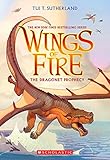The last post gave only a link to a post on math and metacognition. I’ve had a chance to follow up on the links offered in that post and wanted to share a little more detail.
Metacognition
Metacognition and Math: State of Vermont, Agency of Education, Post by Lara White and Tracy Watterson
Their instructional suggestions:
^Teach the concept of metacognition and associated language explicitly
^Require reflective journals
^Model metacognition
^Brainstorm solving techniques
^Estimate answers
^Practice careful questioning
http://education.vermont.gov/documents/EDU-Math_Newsletter_Oct_2014.pdf
Metacognition and Growth Mindset: How to Promote Metacognition & “Growth Mindset” in the Classroom By John Mendes, Ed.D
“A crucial component to learning is being aware of our own thought process and consciously understanding how we process new information. This information allows us to have a better cognitive understanding of how our mind works, and this self-awareness will increase our overall learning efficiency. This insight allows learners to scaffold, using background knowledge and better utilizing learning strategies with focus and intent. Metacognitive skills are imperative in today’s classrooms, as we are preparing students to be tomorrow’s leaders and problem solvers.”
His suggestions:
^Avoid a “Fixed Mindset”
^Model the “Thinking Process”
^Activate “Background Knowledge”
^Reflection and Analysis: “What Your Know vs. What You’ve Learned”
^An Environment that Supports Metacognition
http://www.readinghorizons.com/blog/how-to-promote-metacognition-thinking-awareness-in-the-classroom
Vanderbilt University: Center for Teaching and Learning
by Nancy Chick, CFT Assistant Director
Thinking about One’s Thinking | Putting Metacognition into Practice
It is hard to do justice to this source due to its depth, but here are a few suggestions offered:
^Students’ use of pre and post assessments
^Creating a “Metacognitive” classroom culture
^Students’ self-questioning as they plan and monitor and evaluate their learning
^Teacher prompts
^Teachers’ self-assessment questions
^Study strategy questions
And, there is a valuable bibliography!
http://cft.vanderbilt.edu/guides-sub-pages/metacognition/









Leave a Reply